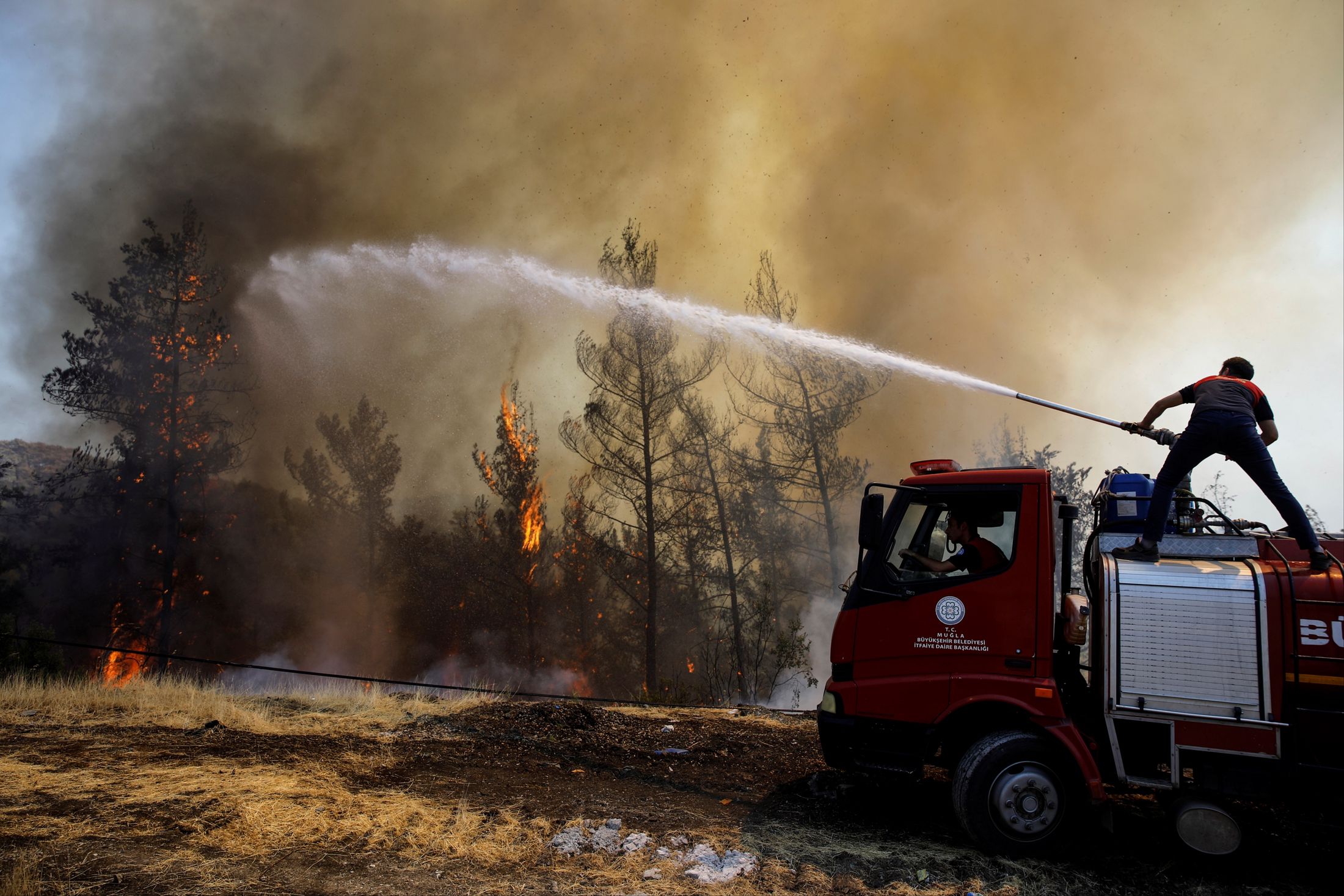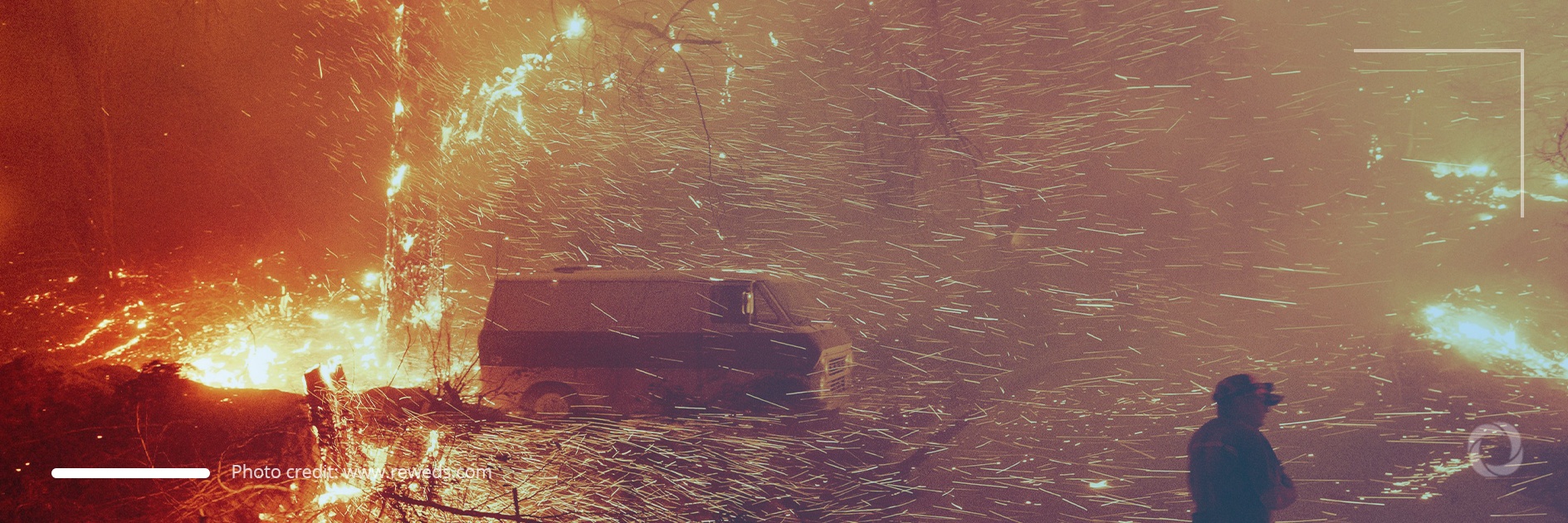Wildfires have overwhelmed central, south-eastern as well as northern Europe due to high temperatures, droughts, and strong winds. Scientists have stated that without doubt the intensity and extent of fires have been driven by climate changes.
Beginning in late July, wildfires have badly affected Italy, Greece, Bulgaria, Turkey, and Spain but separate incidences of wildfire were then reported in Bosnia and Herzegovina, Croatia, Serbia, North Macedonia, Romania, Moldova, Ukraine, and even in northern Finland.
Wildfires have taken the lives of eight people in Turkey and injured hundreds including those in holiday resorts and Turkish coastguards have had to evacuate hundreds of people. As the temperature in Turkey hit 48 degrees Celsius, it is estimated that the country is now facing the worst wildfires since 2003 when records began. The most affected area was Manavgat but fires also broke out in Antalya, Bodrum, and Marmaris which are traditionally host to many tourists.

In Greece, wildfires have hit the northeast of the country including the capital Athens and surrounding areas, even threatening the Acropolis which has now been closed to visitors. The flames have also affected the famous Olympia where the Olympic Games have their origins. Wildfires have also consumed the island of Evia with 90 people being evacuated from there by boats.
Eleni Myrivili, chief heat officer, described the situation as “apocalyptic.” “The skies were grey and red, and there was ash falling on us. It was apocalyptic. On [Tuesday] night, the smoke came into my house and I had to sleep with a mask because I couldn’t breathe,” she told BBC Radio 4.
In Italy, the worst wildfires occurred in the south of the country in Lazio, Campania, Puglia, Calabria, and Basilicata while the worst hit was Sicily where the blaze extended to the port city of Messina and the capital Palermo. Wildfires have also hit the island of Sardinia, central Tuscany, Umbria, and Abruzzo and have devastated the pine woods in the city of Pescara. According to Italy’s main farmers’ association, Coldiretti, the number of wildfires has already tripled in 2021 compared to the yearly average between 2008 and 2020.
The wildfires have also struck the Balkans. In Albania, one man was killed and one soldier was injured. The Ministry of Defence decided to evacuate three villages in the Gjirokastra region and has announced that there are still seven areas where military forces are trying to extinguish the flames with the Karaburun Peninsula being the worst hit. Similarly, the blaze has hit North Macedonia where the most critical situation was Kocani, a town located in the east, but fires are still ongoing near the capital Skopje and in the regions of Strumica, Kumanovo, Bitola, and Stip.

The EU has decided to launch a Civil Protection Mechanism and has sent two helicopters to Albania, 45 firefighters to North Macedonia as well as four air tractors and a ground forest fighting team of 40 firefighters to Greece.
While wildfires usually occur due to negligence and in some cases as the result of arson, scientists have no doubt that the current fires would have not reached the extent they have if it was not for the ongoing climate changes.
According to the EU’s Copernicus Atmosphere Monitoring Service (CAMS), human-caused climate change is making heatwaves more severe and frequent which translates into the dry conditions that provoke wildfires. CAMS points out that the Mediterranean area has become a “wildfire hotspot.”
“Every heatwave that is happening today is made more likely and more intense by climate change,” said Friederike Otto, associate director of the Environmental Change Institute, University of Oxford, and the leading author of the U.N.’s Intergovernmental Panel on Climate Change (IPCC) report.
Europe has also recently been hit by devastating floods as well as wildfires and similar situations have been observed in Canada and the U.S. where California has been the worst hit.

